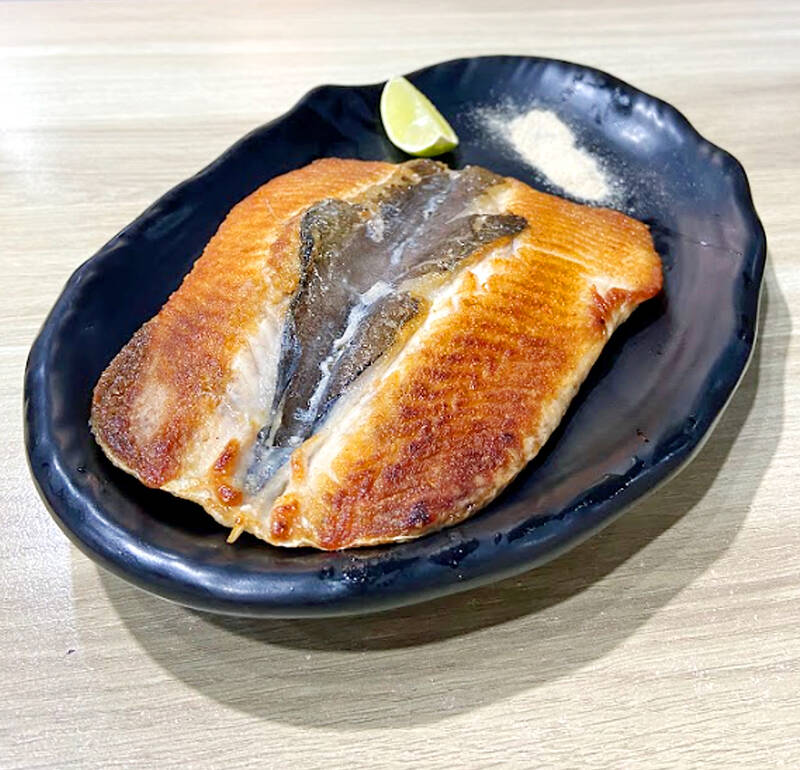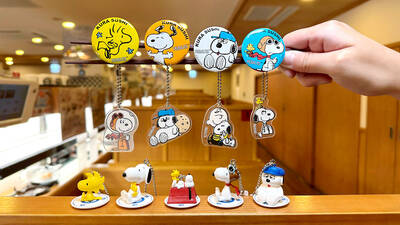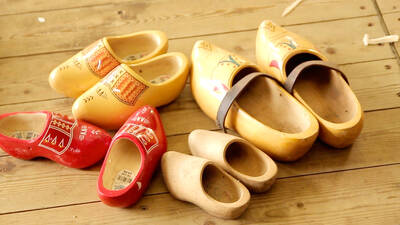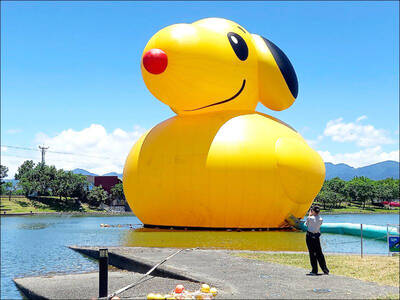According to legends, Cheng Cheng-kung (also known as Koxinga) is said to be associated with another Taiwanese food — milkfish. When Cheng was fighting the Dutch who were stationed at their fort named Fort Zeelandia, they lacked supplies and food, and couldn’t catch any fish to eat. As he worried about running out of food, one night, the sea goddess Matsu appeared in his dream and said, “Don’t say no fish. (Mo-shuo-mo-yu) There are fish in the sea near where your navy is at anchor.”
據說鄭成功還與另一道台灣美食有關—虱目魚。當鄭成功與堅守在熱蘭遮堡的荷蘭人交戰時,軍隊缺乏補給,無糧可食,也捕不到魚可吃。正當為食物發愁時,一天夜裡媽祖在他夢中指點:「莫說無魚。你的水師駐紮的海邊就有魚。」
station (v.) 駐紮

Photo: Bookman l 圖片:書林
Fort Zeelandia (n.) 熱蘭遮堡,遺址位於現今的安平古堡內。
goddess (n.) 女神
The next day, Cheng sent his soldiers to fish at the location indicated by Matsu, and as predicted, they caught a lot of fish. Not knowing the name of the fish, he called them shuo-mo-yu (which means “say no fish”), just as Matsu had instructed him in his dream. Another version of the story suggests that, when Cheng landed in Taiwan, nearby fishermen offered some fish to him. When Cheng asked, “Shi-me-yu?” (meaning “What fish?”), the fishermen mistakenly understood what he said to be the name of the fish.
隔天鄭成功派兵去媽祖指點的地方捕魚,果真如祂所說捕到很多魚,但是因為不知道怎麼稱呼,於是以媽祖夢中所說的「說無魚」命名為「虱目魚」。另有一說是鄭成功登陸時,附近的漁民獻魚,他問是「什麼魚」,漁民誤以為鄭成功稱此魚為「虱目魚」,因而得名。
indicate (v.) 指示;暗示
mistakenly (adv.) 錯誤地
The appearance of the goddess in the dream adds a touch of mystery, making the story a legend. Whether you believe the story or not, one certain thing is that Cheng successfully expelled the Dutch, ending the Dutch company’s colonial rule in Taiwan. To support the anti-Qing military movement to restore the Ming, Cheng actively farmed the land and developed Taiwan. In appreciation of his contribution to Taiwan, many temples have been built to honor Cheng, and he was deified the title Kaitai Shengwang (meaning “The Divine Who Developed Taiwan”). The Koxinga Museum in Tainan is also named after him and houses collections from the Ming and Qing dynasties.
神明託夢讓虱目魚的故事增添傳奇色彩。無論你是否相信,可以確定的是鄭成功戰勝荷蘭人,結束荷蘭東印度公司在台灣的殖民統治。鄭成功積極開墾台灣,作為日後反清復明的基地,為感念鄭成功的貢獻,各地有供奉鄭成功的廟宇,尊稱開台聖王。台南市鄭成功文物館便是以他命名,典藏許多明清時期的文物。
expel (v.) 強迫(某人)離開;驅逐
restore (v.) 恢復
deify (v.) 把...當作神;神化
Milkfish is one of the most popular and affordable fish frequently appearing on Taiwanese households’ dining tables. This versatile fish has a tender yet firm texture, and can be prepared in several ways, from frying to making congee. With the many advantages that milkfish offers, people don’t mind the minor inconvenience of pulling out the tiny fish bones before eating it. In Tainan, milkfish is even used to make fishballs that have a bouncy, chewy texture. This specialty has become very popular and now it is common to find these fishballs in supermarkets all over Taiwan.
虱目魚是台灣人頗愛的魚類,價格實惠,肉質軟而紮實,時常出現在台灣家庭餐桌上,其料理方式多元,可用來煎魚或是煮粥。這麼多優點,在吃之前要挑魚刺的不便,也就無傷大雅了。在台南還將虱目魚做成魚丸,口感彈牙,廣受大眾喜愛,因而在各大超市都買的到。
affordable (adj.) 價格實惠的,擔得起的
versatile (adj.) 用途廣泛的,多功能的
tender (adj.) (食物)細嫩的,軟的
congee (n.) 粥
fishball (n.phr.) 魚丸
文章由書林出版公司提供:
www.bookman.com.tw

A: The news says comic superstar Snoopy’s birthday is coming soon on Aug. 10. B: So he’s a Leo, and his birthday will fall on this Sunday. A: Cartoonist Charles Schulz created the comic strip Peanuts, featuring Snoopy, in 1950. And this year marks the character’s 75th anniversary. B: No wonder there are some big celebrations in Japan, Hong Kong and elsewhere. How about Taiwan? A: The “How Do You Do, Snoopy?” exhibition is taking place in Taipei. Let’s go to Shin Kong Mitsukoshi Department Store’s A11 branch to see the show. A: 新聞說,卡通巨星史努比的生日是8月10日耶。 B: 原來史努比是獅子座,本週日就是他的生日。 A: 漫畫家查爾斯舒茲1950年在《花生》漫畫創造了該角色,今年正好歡慶75週年! B:

When you think of the Netherlands, images of tulips, windmills, and iconic wooden shoes — known as “Dutch clogs” — may come to mind. These traditional shoes are rich in cultural significance. For centuries, Dutch clogs have been admired for their sturdy design and impressive craftsmanship, making them a fascinating symbol of Dutch heritage. Dutch clogs date back to the Middle Ages. During that time, farmers and laborers needed durable shoes to cope with the region’s damp and unpredictable climate and topography. Crafted from solid wood, such as willow or poplar, clogs offered outstanding protection. Their firm structure kept

Bilingual Story is a fictionalized account. 雙語故事部分內容純屬虛構。 “One DA-BEI... WU LONG... NAI?” Yujing smiled as the foreigner struggled to order. He looked like an embarrassed puppy. She repeated the order in Chinese, then English: “Oolong milk tea, large size. Half sweet, no ice?” she said gently. He beamed — the kind of full-face, sunshine smile that Latinos are famous for. “Yes! That! You are... lo maximo… the best!” After he left, Lily nudged her. “Nice save. You’re getting the hang of it.” Yujing had taken this summer job at the bubble tea shop to build confidence and get work

A: Apart from the “How Do You Do, Snoopy?” exhibition, the Penghu International Fireworks Festival displayed some Snoopy-themed balloon installation art. B: The Yilan International Children’s Folklore & Folkgame Festival also displayed a giant rubber “Snoopy Duck.” A: And Starbucks, Kura Sushi and 7-Eleven are all selling Snoopy-themed products. B: Starlux Airlines even launched new Snoopy-themed flights recently. Isn’t that cool? A: Taiwanese love Snoopy so much. Happy 75th birthday, Snoopy. A: 除了《How Do You Do, Snoopy?花生漫畫75週年特展》,澎湖海上花火節展出了史努比氣球裝置藝術。 B: 而宜蘭國際童玩藝術節,則展出了巨型「史努比鴨」。 A: 星巴克、藏壽司、7-Eleven也推出了史努比聯名商品。 B: 星宇航空今年更推出全新「Snoopy主題航班」,很酷吧? A: 台灣人好愛史努比啊,75歲生日快樂!